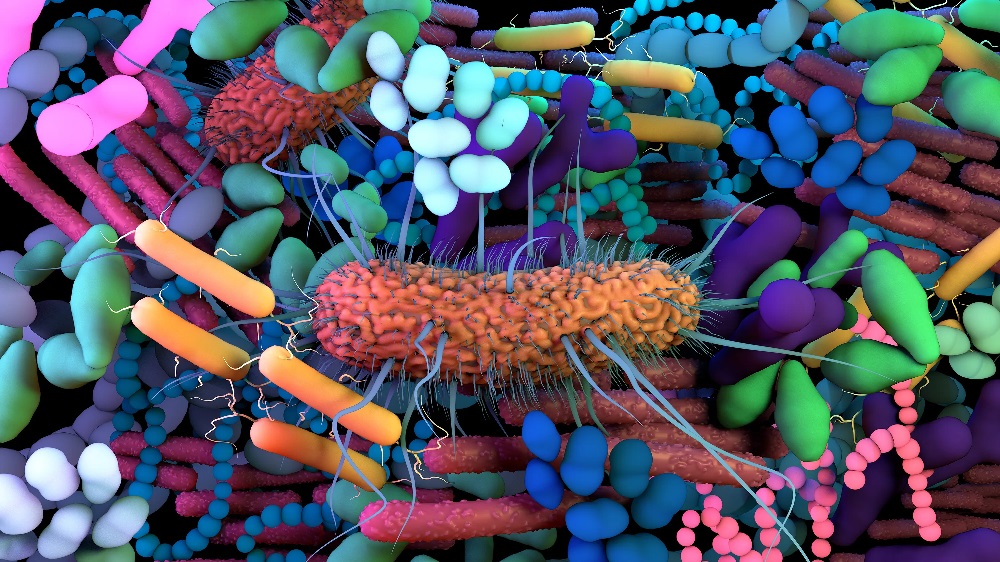The human microbiome, a vast ecosystem of microorganisms, is revolutionizing our understanding of health, disease, and the environment. Comprising bacteria, viruses, fungi, archaea, and other microbes, these tiny organisms influence critical functions such as digestion, immunity, and even mental health. Recent advances in microbiome research have uncovered its transformative potential across medicine, nutrition, agriculture, and environmental science. This article explores the role of the microbiome in shaping big outcomes, from individual health to planetary well-being.
Understanding the Human Microbiome
Composition of the Microbiome
The microbiome is a diverse community of trillions of microorganisms residing in various parts of the body, including the gut, skin, oral cavity, respiratory tract, and urogenital tract. These microbes coexist symbiotically, performing essential functions while maintaining a delicate balance.
How the Microbiome Develops
The microbiome begins forming at birth, with initial colonization influenced by the mode of delivery (vaginal birth or C-section) and early feeding practices (breastfeeding or formula). Over time, genetics, diet, environment, and lifestyle shape its composition.
The Gut Microbiome as the Epicenter
Among all microbiomes, the gut microbiome plays the most significant role. It not only aids in digestion and nutrient absorption but also communicates with other microbiomes, such as those on the skin and in the mouth, to maintain overall health.
How the Microbiome Influences Health
Digestive Health
The microbiome helps break down complex carbohydrates, synthesize vitamins like B12 and K, and produce short-chain fatty acids (SCFAs) that nourish intestinal cells. A healthy gut microbiome prevents disorders like irritable bowel syndrome (IBS) and inflammatory bowel disease (IBD).
Immune System Regulation
Gut microbes train the immune system to distinguish between harmful pathogens and harmless substances, reducing the risk of autoimmune diseases. Dysbiosis (imbalance in microbial composition) can lead to chronic inflammation and weakened immunity.
Mental Health and the Gut-Brain Axis
Through the gut-brain axis, the microbiome communicates with the brain via the vagus nerve and microbial metabolites like serotonin. This interaction influences mood, anxiety, and cognitive function. Studies have linked microbiome imbalances to conditions like depression and autism.
Metabolic Health
The microbiome affects metabolic processes, including energy extraction and fat storage. Imbalances can contribute to obesity, insulin resistance, and type 2 diabetes.
Cardiovascular Health
Certain gut bacteria produce metabolites like TMAO (trimethylamine N-oxide), which have been associated with heart disease. Balancing the microbiome may lower cardiovascular risks.
The Role of Microbiome Dysbiosis in Disease

What Is Dysbiosis?
Dysbiosis refers to a disruption in the balance of microbial communities, often caused by poor diet, antibiotic use, stress, or environmental toxins. This imbalance can trigger various diseases.
Diseases Linked to Dysbiosis
- Gastrointestinal Disorders: Dysbiosis is a hallmark of IBD, IBS, and colorectal cancer.
- Allergies and Asthma: An imbalanced microbiome can overactivate the immune system, leading to hypersensitivity.
- Neurological Disorders: Microbiome disruptions have been implicated in depression, autism, and Parkinson’s disease.
- Chronic Diseases: Dysbiosis contributes to conditions like diabetes, obesity, and cardiovascular disease.
The Emerging Role of Microbiome in Infectious Diseases
Research shows that commensal microbes can either enhance or inhibit pathogen colonization. Additionally, the microbiome influences vaccine efficacy and immune responses.
The Microbiome Beyond Human Health
Microbiome in Agriculture
Soil microbiomes play a crucial role in plant growth, nutrient cycling, and disease resistance. Advances in microbiome science are being used to develop biofertilizers and improve crop resilience.
Environmental Microbiomes
Microbial ecosystems in oceans, forests, and urban environments regulate climate, recycle nutrients, and break down pollutants. Protecting microbial diversity is essential for environmental health.
Animal Microbiomes
In livestock and aquaculture, microbiome management enhances animal health and productivity. Understanding animal microbiomes also aids in veterinary medicine.
Harnessing the Microbiome for Better Outcomes
Probiotics and Prebiotics
- Probiotics: Live beneficial bacteria found in fermented foods (e.g., yogurt, kefir) and supplements.
- Prebiotics: Non-digestible fibers that feed beneficial microbes (e.g., in bananas, onions, and asparagus).
Fecal Microbiota Transplantation (FMT)
FMT involves transferring healthy donor microbes to patients with conditions like Clostridioides difficile infections. Emerging applications include obesity and autism treatment.
Personalized Medicine
Microbiome profiling allows for tailored interventions, optimizing treatments for conditions like IBD, cancer, and metabolic disorders.
Microbiome Editing
Techniques like CRISPR enable precise modifications of microbial communities to treat diseases or combat antibiotic resistance.
The Microbiome and Future Technologies
Advancements in Microbiome Research
Metagenomics and bioinformatics tools provide insights into microbial functions, while single-cell sequencing uncovers previously unstudied microbes.
Microbiome Engineering
Synthetic microbiomes and engineered microbial consortia are being developed as “living drugs” to target specific health issues.
Applications in Space Exploration
Microbiomes play a role in maintaining astronaut health and supporting closed-loop life systems, ensuring food production and waste recycling during long missions.
Ethical and Societal Considerations
Ethical Implications of Microbiome Interventions
Safety concerns surround microbiome editing, especially regarding unintended consequences and ecological impacts. Ethical guidelines are crucial for advancing microbiome science responsibly.
Socioeconomic Impacts
Access to microbiome-based therapies may exacerbate health disparities if affordability and availability are not addressed.
Environmental and Biodiversity Concerns
Disrupting microbial ecosystems could have far-reaching consequences for health and biodiversity. Conservation of microbial diversity is vital.
Practical Tips for a Healthy Microbiome
Dietary Recommendations
- Consume fiber-rich foods (e.g., whole grains, fruits, vegetables).
- Include fermented foods like kimchi, sauerkraut, and miso.
- Minimize processed foods and added sugars.
Avoiding Unnecessary Antibiotics
Use antibiotics judiciously to prevent long-term disruptions in microbial balance.
Lifestyle Habits
- Engage in regular physical activity.
- Manage stress through mindfulness and meditation.
Staying Informed
Keep up with microbiome research and consult healthcare professionals for personalized advice.
Conclusion
The microbiome revolution underscores the profound influence of tiny organisms on big outcomes. From shaping human health to safeguarding the environment, these microbial communities hold the key to transformative advances in medicine, agriculture, and technology. By prioritizing microbial diversity and adopting microbiome-friendly practices, we can unlock the full potential of this hidden world for a healthier future.


